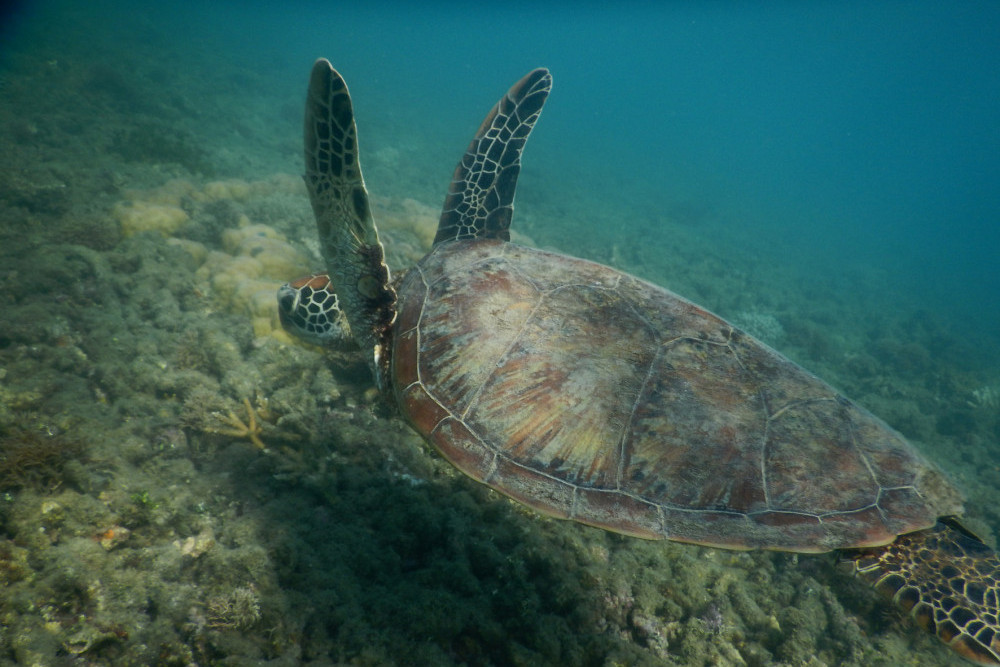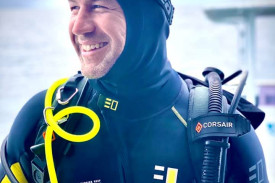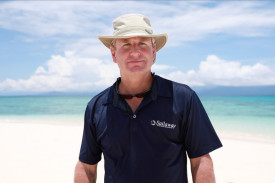General News
24 June, 2021
Reef wake-up call issued
THE WORLD Heritage Committee (WHC) released a report on Monday night, recommending that the Great Barrier Reef be added to a list of world heritage sites ‘in danger’ due to the Australian government’s failure to meet key targets in water quality, land management, and carbon emissions.

The report cited the 2019 Great Barrier Reef Outlook Report, compiled by scientists working in Queensland for the Australian Government’s Great Barrier Reef Marine Park Authority (GBRMPA), which found that the long-term outlook for the ecosystem health of the reef had declined from ‘poor’ to ‘very poor,’ and that it had suffered significantly from mass coral bleaching events in 2016, 2017 and 2020.
The report also noted that “despite many positive achievements, progress has been largely insufficient in meeting key targets of the GBRMPA Reef 2050 Plan, in particular the water quality and land management targets, as evidenced by the conclusions of the 2017-2018 and 2019 [GBRMPA] Reef Quality Report Cards.”
Federal Environment Minister Sussan Ley, Federal Member for Leichhardt Warren Entsch and GBRMPA CEO Josh Thomas expressed disappointment in the WHC’s findings and pointed to a range of measures that are being taken to protect the reef.
“I suspect this has been driven more by politics than reality, and if they really want to make an accurate assumption, I would invite them… to get off their bums in their air conditioned offices in northern Europe and come across here and actually put their head under the water and see for themselves,” said Mr Entsch.
However Great Barrier Reef Legacy managing director Dr Dean Miller, a Port-Douglas based scientist who has done thousands of dives at the Great Barrier Reef, said the WHC recommendation was “not surprising.”
“This comes on the back of the GBRMPA Outlook Report, which rated the outlook of the Great Barrier Reef as very poor, and on the back of three mass bleaching events in five years,” he said.
“The future of the Great Barrier Reef doesn’t look great and that’s direct from our federal marine park agency, GBRMPA.
“This is a wake-up call for Australia, and the world.
“Yes, we’re doing lots of on-the-ground activity in terms of reef restoration and improving water quality, Crown of Thorns Starfish and so on, but what UNESCO is saying to us is ‘you’re not tackling climate change.’
“That’s the big thing here. You can do everything you want on the ground, but if you don’t address climate change you’re not going to save the Great Barrier Reef.
“What Australian politicians need to do is decide, ‘Are we doing the best we absolutely can for the Great Barrier Reef right now?” he said.
“I don’t think we are, and I think we can do much better.
“We need to make a decision – is it coral or coal? We can’t keep approving new coal mines and coal-fired power stations.
“We really need a race to renewables. We have no excuses. We have an amazing economy, skill set, expertise and technology ready to go.
“We know it creates more jobs than non-renewable industries. What are we waiting for?”
Dr Miller said the Great Barrier Reef tourism industry had suffered many hits to its public perception following three mass bleachings in five years, and that it was important to reassure the world that the reef, while ‘in danger,’ was still beautiful.
“People need to understand that the Great Barrier Reef is still in very good condition and is one of the best reef systems on the planet,” he said.
“While we are experiencing significant risks to the Great Barrier Reef, this problem is across all coral reefs in the world. People can and should still come and visit the reef as it’s still very worth seeing.”
Sailaway Port Douglas reef tour operator Steve Edmondson said fortunately, the majority of visitors didn’t base their opinions solely on heritage listing status.
“Confidence in the destination is based on real experiences, the people who visit, and their satisfaction and experiences every day, which reflect that the reef is healthy,” he said.
“However that doesn’t mean that it’s not threatened or fragile or endangered.
“All natural assets are in danger, because if we can’t do any better they’re all impacted by the incredible pressure were putting on them.
“However, high standard sustainable eco-tourism companies have a unique opportunity to inspire and educate people to change their perceptions.
“People nowadays are travelling with greater consciousness, they have a level of education where they want to do something worthwhile and something sustainable on their holiday.
“We have eight marine biologists on our staff, and this not only improves tourism but also the environment because we’re educating people and that’s what changes votes.”
Mr Edmondson said regardless of whether ‘in danger’ was the right label, the WHC report sent a clear message to the government that more could be done to help the reef.
“We don’t really want to see politicians get bogged down in terminology, it’s a lesson either way,” he said.
“We need to focus on how we can do better and keep our full focus on environmental best practices.”
Dr Miller said the tourism industry deserved more support from the government to survive climate-related threats to business, such as the multiple mass coral bleaching events seen in recent years.
“What the tourism industry needs to do is rally the government for greater support,” he said.
“We’ve seen other industries doing this very well, like farmers. They get great support from the government in times of drought, but the tourism industry doesn’t get great support in times of decline in reef health.
“We’re seeing unprecedented declines in reef health. Where is the support from the government to ensure the tourism industry not only gets through this but can thrive and experience growth?”




